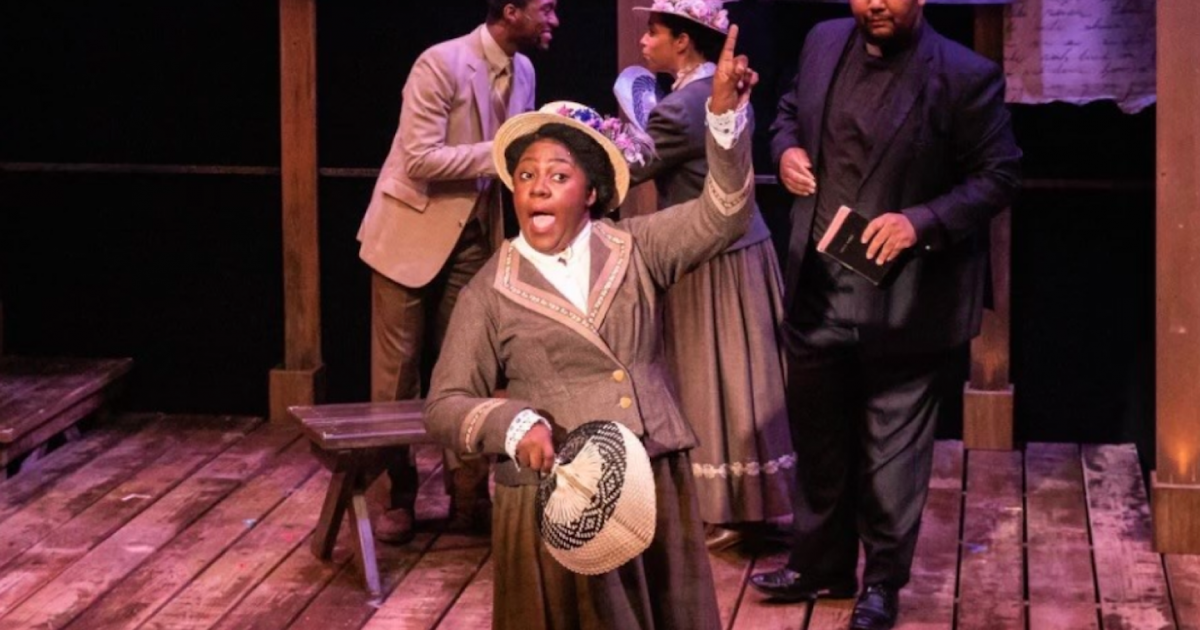Not Letting Cancer Interrupt Her Dreams
- Savannah Alfred from Phoenix, Arizona was diagnosed with stage 4 Hodgkin lymphoma, a type of blood cancer, in the middle of a stage run for The Color Purple.
- Not wanting her diagnosis to interrupt the production, she asked her doctor if she could delay her treatment. He said yes, and she bravely finished out the show.
- Hodgkin lymphoma is more likely to develop in younger folks, while non-Hodgkin lymphoma is much more common. Symptoms of Hodgkin lymphomain addition to lumps on the neck or lymph nodesmay include swelling around the armpits or groin, persistent fatigue, fever, night sweats, unexplained weight loss, and severe itching.
As thespians are strictly trained pros, “the show must go on,” and Savannah Alfred did not want to let her diagnosis interrupt her performance.
Read MorePlus, being around that many people during her treatment could be dangerous for Savannah.
They had an understudy lined up, who had filled in for Savannah once while she got her scans. However, Savannah just couldn’t bail out on her castmates, and give up performing. She asked her doctor if she could continue the show and delay treatment, which is not always advisable, but it meant the world to Savannah, and the doctor determined that it would be okay.
” … it's such a strong message. The overall message of 'The Color Purple' is hope,” she shared. “One line that I talk to myself and use it as encouragement is 'the good lord works in mysterious ways.'"
Following the production’s last performance and gearing up for her “healing journey,” The Phoenix Theatre Company added one last show specifically to raise funds for Savannah. The organization raised over $9,500 for her medical expenses.
View this post on Instagram
The cast had recorded a video message of support as a surprise for their brave cancer warrior, then gave an extra special thanks to those attending that night.
"I want to thank all of you for bringing the energy to our show tonight, which mirrors the energy that we all know Savannah has and will continue to have," a spokesperson for the group said.
View this post on Instagram
Savannah shared her thank you note for the incredible kindness and support she received from her peers.
“Grateful does not even begin to describe how I feel,” she wrote. “The amount of positive energy, support, and most importantly love shown from that one night has filled my heart and soul.”
Savannah continued saying that it feels wrong just do say “thank you,” so she said this instead.
“It's times like these where you truly get a glimpse of who you are as a person,” she shared. ” How you've affected people in your life and what your decisions throughout your journey have led people to think of you. A mirror was held to me and all I can say is I did not know I was this loved.”
She addressed her “village,” “chosen family,” and her supporters, telling them just how much she loves them.
'It Takes A Village to Get Chrissy Through Cancer': A 14-Year Survivor On Her Sisterhood of Support
“Thank you for all you've given to me in every way,” she concluded, and added, “As my stage manager always says, I'll see you on the other side.”
Savannah is now weeks into her treatment, and thankfully, doctors say she is responding well so far to the treatment. As for her friends, they started a GoFundMe for the special performer in her most difficult role yet.
What is Lymphoma?
Lymphoma is a cancer of the immune system that begins in the white blood cells called lymphocytes. Hodgkin lymphoma and Non-Hodgkin lymphoma are the main two sub-categories with the latter being more common.
Lymphoma is different from cancers of specific organs like the lung or breast. It's not one cancer, but an umbrella term that encompasses several different types. Knowing which kind of lymphoma you have is important as you and your doctor plan your treatment.
"I always advise that people understand their specific type of lymphoma, because there are over 40 different types," Dr. Elise Chong, medical oncologist at Penn Medicine, tells SurvivorNet. "One of the best ways to wrap your head around lymphoma is to start thinking about the different ways we categorize lymphoma."
What Kind of Lymphoma Do You Have? Why Your Type Matters
Hodgkin lymphoma has distinctive, giant cells called Reed-Sternberg cells. The presence of these cells, which can be seen under a microscope, will help your doctor determine which of the two lymphoma types you have.
There are a few other important differences to note. For one thing, non-Hodgkin lymphoma is much more common. And you're more likely to be diagnosed with it after age 55. People usually develop Hodgkin lymphoma at a younger age.
Another difference is that non-Hodgkin lymphoma is more likely to spread in a random fashion and be found in different groups of lymph nodes in the body, while Hodgkin lymphoma is more likely to grow in a uniform way from one group of lymph nodes directly to another.
Related: Finding Lymphoma EarlyDo you Know the Symptoms and Risks?
You might be at a higher risk for this cancer if you:
- Have been infected with the HIV or Epstein-Barr virus
- Had an organ transplant
- Have a family history of lymphoma
- Have been treated with radiation or chemotherapy drugs for cancer in the past
- Have an autoimmune disease
- People with lymphoma do not always have symptoms, but common ones are:
- Swollen glands in your neck, armpit or groin
- Fever
- Chills
- Night sweats
- Unexplained weight loss
- Feeling tired
- Swelling in your stomach
Learn more about SurvivorNet's rigorous medical review process.


